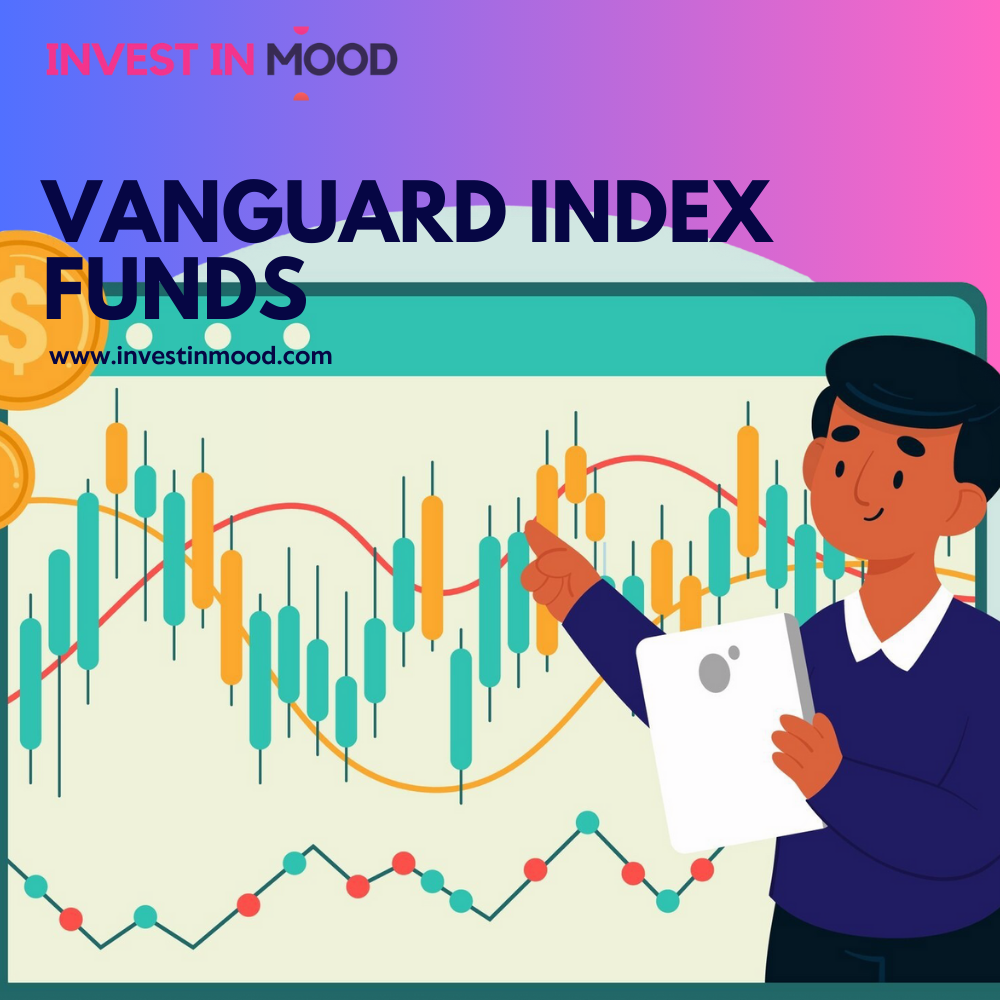Part of the Series: Specialized Investment Funds
Vanguard Index Funds have become a popular investment option for both beginner and seasoned investors due to their low fees, broad diversification, and potential for long-term growth. Whether you’re just starting to invest or looking to expand your portfolio, Vanguard Index Funds can be an excellent choice. This article explores what Vanguard Index Funds are, how they work, how to invest in them, their benefits, and answers to frequently asked questions.
KEY TAKEAWAYS
While Vanguard Index Funds are designed for long-term growth, they are not immune to short-term market fluctuations. Staying invested through market cycles is key to capturing their full potential.
What Are Vanguard Index Funds?
Vanguard index funds can be structured as mutual funds or ETFs and are designed to track indices like the S&P 500, NASDAQ-100, or the CRSP US Total Market Index. Managed by Vanguard, one of the world’s most respected investment management companies, these funds use a passive investment strategy.
Unlike actively managed funds where fund managers attempt to outperform the market by selecting specific stocks, index funds simply mirror the holdings of the index they track. This strategy leads to lower operating costs, making Vanguard Index Funds a cost-effective option for long-term investors.
When I first began investing, I started with VTSAX because I wanted broad exposure without needing to research individual stocks. Years later, that single decision became the cornerstone of my retirement portfolio.
How to Invest in Vanguard Index Funds
Investing in Vanguard Index Funds is straightforward. Here’s a step-by-step guide:
- Open an Account: Begin by setting up an investment account through Vanguard. Options include a taxable brokerage account, a Roth or Traditional IRA, or other retirement accounts based on your goals.
- Choose the Right Fund: Vanguard offers a variety of index funds. Popular choices include:
- Vanguard 500 Index Fund (VFIAX): Tracks the S&P 500, covering 500 of the largest U.S. companies.
- Vanguard Total Stock Market Index Fund (VTSAX): These funds provide comprehensive exposure to the U.S. stock market, spanning companies of all sizes—from small-cap to large-cap.
- Vanguard Total Bond Market Index Fund (VBTLX): Offers a wide-ranging mix of U.S. investment-grade bonds.
- Fund Your Account: Transfer money via bank transfer, check, or rollover from another investment account.
- Create Your Portfolio: Invest in the fund of your choice through either a one-time deposit or scheduled automatic contributions.
- Track Your Portfolio: Although index funds are best suited for a long-term strategy, it’s wise to review your holdings occasionally to ensure they still support your financial goals.
Reinvest your dividends automatically within your Vanguard Index Fund. Over time, dividend reinvestment significantly accelerates compound growth—especially in tax-advantaged accounts like a Roth IRA.
Advantages of Vanguard Index Funds
- Low Expense Ratios
Vanguard is known for offering some of the lowest management fees in the industry. These cost savings can have a significant compounding effect on your returns over time. - Diversification
Investing in index funds gives you exposure to a wide variety of securities, which helps reduce risk by spreading investments across many sectors and companies. - Simplicity
Passive investing means you don’t need to pick individual stocks or adjust your portfolio frequently, making it a convenient, low-maintenance strategy. - Consistent Returns
These funds generally provide returns that match the performance of the index, making them reliable for long-term growth rather than short-term speculation. - Tax Efficiency
Vanguard’s index funds tend to have lower portfolio turnover, which can reduce capital gains taxes for investors in taxable accounts.
During the 2008 financial crisis, investors who held onto their Vanguard Index Funds saw significant declines but those who stayed the course recovered fully and more than doubled their portfolio value by 2018.
Pros and Cons of Vanguard Index Funds
| Pros | Cons |
|---|---|
| ✔ Among the lowest expense ratios in the industry. | ✘ Exposed to market volatility, returns can fluctuate with the market. |
| ✔ Instantly diversifies your portfolio, reducing overall risk. | ✘ Passive strategy may miss opportunities for higher active returns. |
| ✔ Ideal for long-term investors seeking steady market-matching gains. | ✘ Minimum investment requirements may apply to some funds. |
| ✔ Index funds can also result in lower capital gains taxes for taxable accounts. | ✘ No control over individual stock selection within the fund. |
It’s generally advisable to avoid market timing when using index funds. Jumping in and out based on headlines often leads to missed gains, higher taxes, and emotional decision-making that hurts long-term performance.
Choosing the Right Vanguard Index Fund
Selecting the right fund depends on your goals, timeline, and risk tolerance:
- Market Exposure: Decide if you want exposure to domestic equities, international markets, bonds, or a balanced mix. For example, VTSAX is ideal for total U.S. market exposure.
- Risk Profile: Equities generally carry higher risk and return potential, while bond funds like VBTLX offer more stability.
- Expense Ratio: Be sure to evaluate and compare the expense ratios of different fund options. Lower fees mean higher net returns.
- Minimum Investment: Some funds require a minimum initial investment (e.g., $3,000 for Admiral Shares), so choose one that aligns with your budget.
Over the past 30 years, the S&P 500 has returned an average annualized return of 10%, and Vanguard’s S&P 500 index funds have closely tracked this performance thanks to ultra-low fees.
Conclusion
Vanguard index funds are a strong option for investors who value affordability, diversification, and dependable long-term growth. Whether you want exposure to U.S. equities, international markets, or fixed income securities, Vanguard provides a variety of funds that can help you achieve your financial goals.
With their transparent structure, low fees, and track record of aligning with market performance, Vanguard Index Funds deserve a place in most long-term investment portfolios. To create a successful investment plan, make sure your fund choices reflect your personal risk tolerance, long-term goals, and investment timeline.
